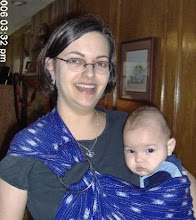Finished this week:
The Associate, by John Grisham.
Without Remorse, by Tom Clancy.
Labels: Clancy, Fiction, Tom Clancy
Debt of Honor, by Tom Clancy
Executive Orders, by Tom Clancy
On September 11, 2001, after the initial shock had worn off, a few people (myself included) who were familiar with Clancy's Debt of Honor recalled the incident which occurs at the end of the book: A Japanese airline pilot, distraught and angry over relatives killed in a short-lived conflict between his country and the United States, crashes an empty Boeing 747 into the Capitol building during a Presidential address, killing the President and virtually all of the members of Congress, the Supreme Court, the Cabinet, and the Joint Chiefs of Staff. Clancy's hero, Jack Ryan, who had just been confirmed as Vice President, narrowly escapes death and is immediately sworn in as President. Executive Orders picks up right where Debt of Honor leaves off, as a reluctant President Ryan handles both domestic and international crises while rebuilding the government as he and his family adjust to their new roles.
Prior to September 11, it had not occurred to most people that a passenger jet could be used as a weapon of mass murder. But to Tom Clancy it had.
While not exactly prophetic, many of the themes and plotlines of Debt of Honor (1994) and Executive Orders (1996) seem familiar to us. In Debt of Honor, we see in detail the unraveling of the U.S. economy (through an engineered attack on the markets, rather than as a result of sub-prime mortgages and toxic assets). Executive Orders contains a bioterrorism attack on the US, the assassination of the Iraqi dictator, the merger of Iraq and Iran into the United Islamic Republic, and a second Persian Gulf war - complete with embedded journalists. Although some of Clancy's cold war novels now seem a bit stale, these two still seem fresh, even nearly ten years after publication.
I've been reading through all the Jack Ryan novels, in plotline order, but at this point I plan to take a break and read Without Remorse and Rainbow Six, set in the same universe but staring John Clark as the main character. And get some non-fiction reading done.
Labels: Fiction, Tom Clancy
Sarah: How a Hockey Mom Turned the Political Establishment Upside Down, by Kaylene Johnson
As a biography, it's not great. It's a history of Sarah Palin's life, without the critical analysis that one would expect from a professional biographer. But I notice that the book is penned by a magazine writer and two-time book author, a resident of Wasilla, Alaska; and as such, it is an adequate biography. It only covers Sarah's life up to her swearing-in as Alaska governor.
Labels: Biography, Nonfiction, Politics
Paul of Dune, by Brian Herbert and Kevin J. Anderson
If you remember, I read through all fourteen then-existing Dune novels last year, plus Dreamer of Dune and The Road to Dune. Let me just say, Herbert & Anderson have come a long way since writing the mind-numbingly boring Legends of Dune trilogy. Paul of Dune is shorter, more concise, with a plot that moves along as it should. There also seemed to be some effort to address the factual inconsistencies (too numerous to mention) between the Frank Herbert Dune novels and the Herbert/Anderson Dune novels. (Basically, it's all Irulan's fault.) Looking forward to the rest of the Heroes of Dune novels.
The Longing, by Beverly Lewis.
This is the third of three books in the "Courtship of Nellie Fisher" series, one of my favorite Beverly Lewis series. It did not have the element of mystery that was present in some of her previous novels, and I thought the ending was a bit abrupt. But it had a clear spiritual message and compelling characters.
Labels: Beverly Lewis, Fiction





